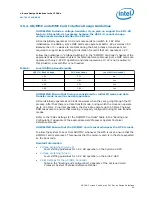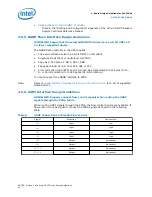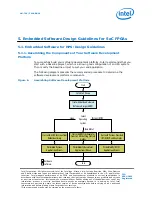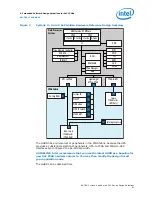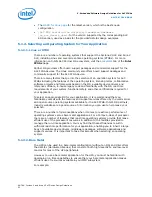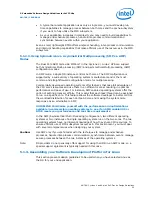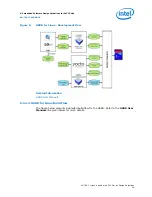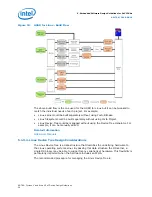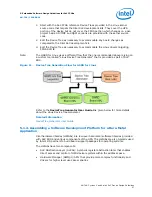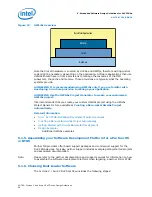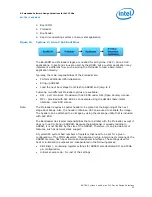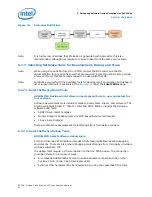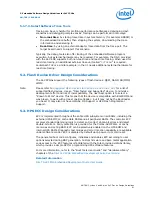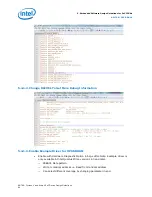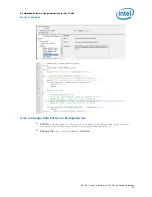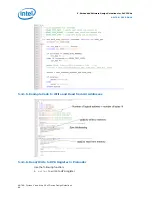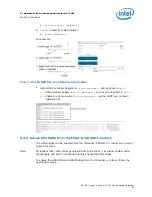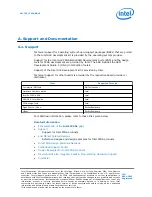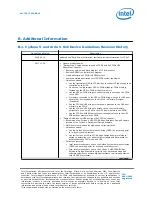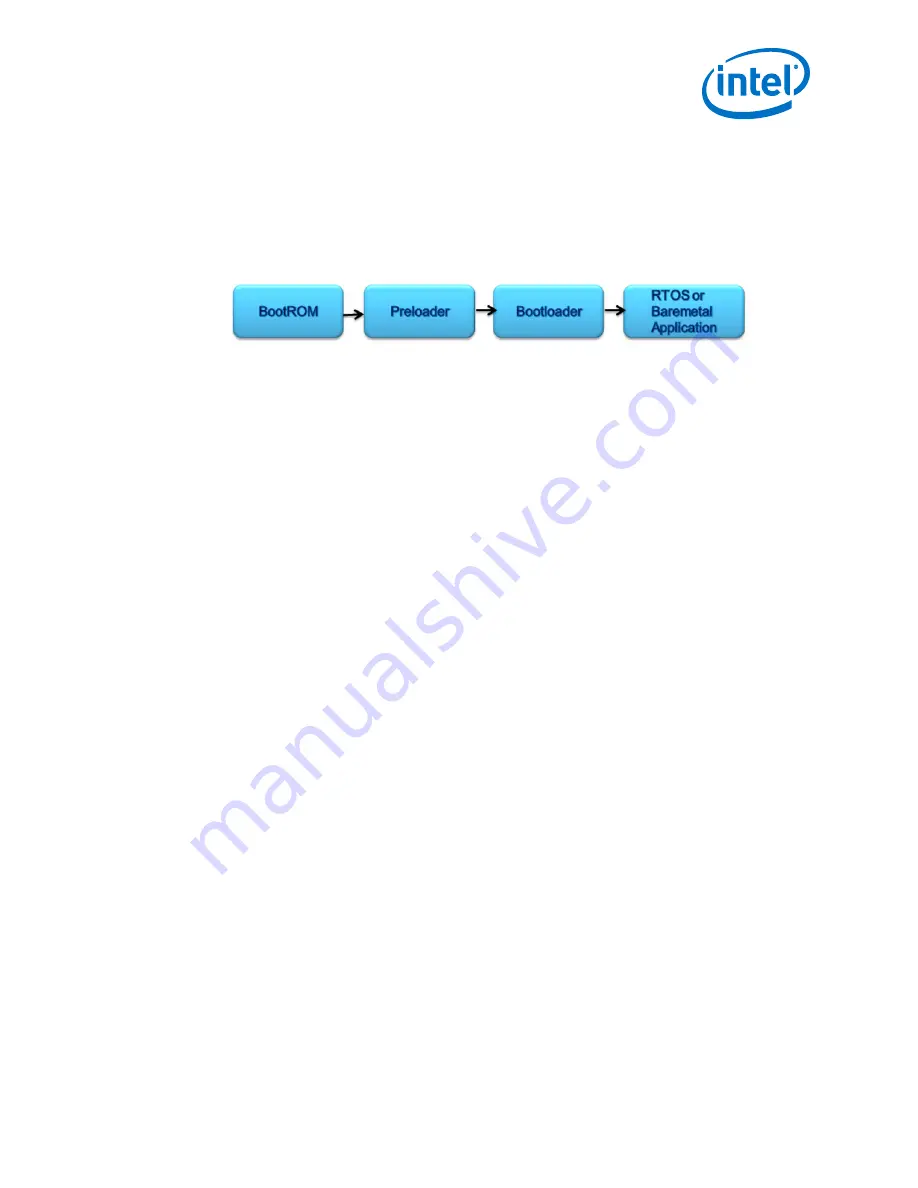
1. Boot ROM
2. Preloader
3. Bootloader
4. Real-time operating system or bare-metal application
Figure 13.
Cyclone V / Arria V SoC Boot Flow
The BootROM and Preloader stages are needed for all Cyclone V SoC / Arria V SoC
applications. U-boot and Linux are used by the GSRD, but a custom application may
implement a different flow, such as using the Preloader to load a bare-metal
application directly.
Typically, the main responsibilities of the Preloader are:
•
Perform additional HPS initialization
•
Bring up SDRAM
•
Load the next boot stage from Flash to SDRAM and jump to it
Currently, two different Preloader options are available:
•
SPL - part of U-Boot. Provided with SoC EDS under GPL (Open Source) License
•
MPL - provided with SoC EDS as an example using the HWLibs (bare-metal
libraries). Uses BSD license.
Note:
The Preloader requires a special header to be placed at the beginning of the next
stage boot image. Also, the header contains a CRC value used to validate the image.
The header can be attached to an image by using the mkimage utility that is included
with SoC EDS.
The Bootloader has typical responsibilities that are similar with the Preloader, except it
does not need to bring up SDRAM. Because the Bootloader is already residing in
SDRAM, it is not limited by the size of the OCRAM. Therefore, it can provide a lot of
features, such as network stack support.
A typical HPS system had numbers of registers that need to be set for a given
configuration of the MPU subsystem, the network-on-chip interconnect component, the
SDRAM memory, flash boot source and peripheral interfaces. The settings used for
boot or initialization purposes are encapsulated in the following places:
•
RBF File(s) - containing register settings for SDRAM also dedicated I/O and FPGA
pin configuration.
•
U-Boot source code - for rest of the settings
5. Embedded Software Design Guidelines for SoC FPGAs
AN-796 | 2018.06.18
AN 796: Cyclone V and Arria V SoC Device Design Guidelines
59

